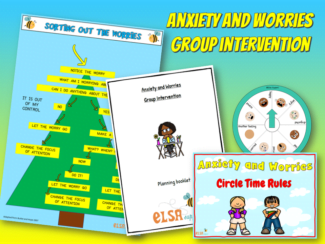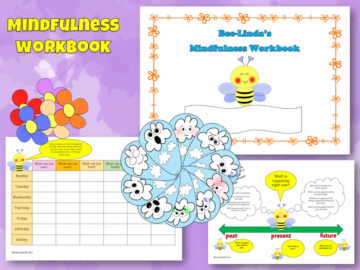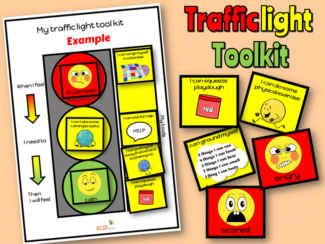#ELSACHAT – Separation Anxiety
#ELSACHAT Separation Anxiety
The Facebook group held an event on separation anxiety. There was lots of learning going on and the following is a summary of that event.
Question 1
Do you have personal experience of separation anxiety either yourself as a child or one of your children?
Personal experiences of Separation anxiety. I am not sharing on here due to the sensitive nature of the answers but I do think it is important to think about your own experiences of separation anxiety. How you felt? How your children felt? What did you do? What physical symptoms did you have. This does help you empathise more with the child and the parent going through this.
Question 2
What thoughts do you think a child with separation anxiety will have?
Child may have the following thoughts:
- I’ll never see them again.
- Something might happen to them when I am gone.
- My mum/dad might get ill when I am gone.
- They might die.
- They won’t come back.
- Something bad might happen.
- What if?
- Will I see them again.
- Something good or bad might happen when I am gone.
- I am not in control.
- What if they….
- forget me.
- leave for good.
- forget to pick me up.
- How do I know they will pick me up?
- What am I missing at home?
- What are they doing at home without me?
- Will they miss me?
- Don’t they like me anymore?
- Don’t they want to be with me?
- I don’t feel safe.
- They might stop loving me.
There are several resources on the website used to challenge negative thoughts. There is a workbook Thoughts, feelings, actions
AND a worksheet Challenge those thoughts
Question 3
What feelings and physical sensations might a child have, who is suffering from separation anxiety?
Feelings:
- Scared
- worried
- overwhelmed
- loneliness
- abandoned
- jealousy
- fear
- panic
- angry
- agitated
- confusion
- tense
- anxious
- Unable to verbalise the feeling
Physical symptoms
- Feeling sick
- Tummy ache
- head ache
- butterflies
- churning tummy
- dizziness
- Trembling, shaking
- Chest pain
- dry mouth
- sweaty palms
- fast heart beat
- Rapid breathing
- choking feeling
- Tears
- Hyperventilating
- Hot
Behaviours
- Not sleeping
- Nightmares
- Loudness/shouting
- Clingy
- Attention seeking
- angry
- physically aggressive
- Crying
- Delaying tactics
- Curling into a ball
- Isolating themselves
- Kicking
- Running away
- Fight/flight/freeze response
Question 4
What are your top 3 tips to give to a parent/carer over their child’s separation anxiety?
- Explain how it is normal to feel anxious and the reasons we all experience anxiety sometimes.
- Listen to your child and validate their feelings without letting them escalate in a calm manner without judgement. Never belittle their feelings.
- Be kind but firm and never give in.
- Give something the child can keep with them of yours for during the school day.
- Try to encourage your child to challenge their thoughts safely. What evidence is there? Is this likely or unlikely to happen?
- Focus on positive separation with you and your child. How well they coped. What exciting things they did whilst you were away. How it felt to reunite again. They did it then and they can do it now.
- Don’t mind the blips, sometimes there will be progress and something might make them go backwards for a day or two. That is ok!
- Give your child lots of patience.
- Agree a goodbye routine with your child. Reinforce how you will be returning to collect them and when that will be eg. after storytime.
- Never sneak away.
- Use a consistent approach of attentive goodbyes and happy reunions.
- Stick to what they are supposed to be doing eg. going to school, going to bed.
- Ask a familiar adult (grandma/pa) to take them to school. The separation might not be so intense for them.
- Reassure using positive language such as ‘you are going to be fine, everyone feels a little nervous sometimes’. ‘It’s ok to try new things’, ‘You will have a good time’.
- Be consistent at all times.
- Routine such as 3 kisses, 2 cuddles and a wave.
There is a ‘Heart to Heart’ diary on the website which may help with communication between the child and their parent.
Question 5
What have been your most effective strategies for supporting a child with separation anxiety in your school?
- A plan the child has collaboratively explored and agreed.
- Gentle encouragement where possible but firm boundaries and positive re-enforcement that they can do this!
- Celebrate the achievements of the little steps all the way!
- Also a job once in school to distract. Item of parent or photo they can look at during the day.
- Smart targets so they can prove to themselves what they are able to achieve
- On the bad occasions parents may benefit from a call to say child has settled and is in class
- Definitely speedy separation quite often it is parent that prolongs the goodbye which then increases the child’s separation anxiety. Had it where the child has started to go into school and parent calls them back for prolonged hug then child becomes anxious.
- Building a relationship with the parent so that a plan can be made on how to transition the child into school. If the child is ok once parent has left and it is just the separation then basically – hug, kiss, reassurance, fast separation and handed over to ELSA or staff member.
- I have helped a boy with this he couldn’t come into school at all initially crying feeling sick etc. Found calls to dad at break and lunch times by child so he knew dad ok then reduced to one call one text etc even had to eat separately with me outside but after ELSA sessions and my support now doesn’t even acknowledge, which is great news
- Made list of questions that they kept asking as a delay tactic (and mum kept answering!) They filled it out before school and then brought copy with me and filled in class one to give to the teacher. They can use this if needed to reassure during the day.
- Gave a special job, such as library books, writing timetable for the day
- Transitional object. Building upon strategies to help the child when feeling that way. Naming the anxiety to help the child relate.
Question 6
What proactive work have you done with a child to support them with their separation anxiety?
- Identifying what it looks like, feels like, rate it on a scale, shape, colour. Also to look at at time of day when it’s worse. The worries and fears lapbook is very helpful for scaling worries
- Teaching them what it means to be anxious. That it is a scary feeling but it won’t hurt them. It can be controlled and won’t last forever. The Master Your Monsters workbook is helpful for learning about anxiety. There is also a ‘Anxiety and worries intervention’ for a group of children.
- Making a worry monster to eat the written/ drawn worries.
- Looking at ‘likely to happen’ or ‘unlikely to happen’ scenarios.
- Positive reinforcement of successful separations
- Encouraging the child to share something good that has happened to a partner.
- Encouraging the parent to praise for the good that has happened that day. Ignore the bad.
- Relaxation techniques such as Relax kids cds and story books. There are some relaxation cards on the website to download.
- Mindfulness sessions before going into class. There is a free storybook on mindfulness which can be downloaded by clicking the link. There is also a workbook to go with the story and some ‘cloud’ emotion fans. Bee-Linda’s Mindfulness workbook
- Toast club where children can be handed over to an ELSA to play games and eat toast.
- An allocated time to discuss worries with mum.
- A morning transition group with different activities on the table. Parent drops the child off there where it is quieter and calmer and the child gets more individual attention. Child can be taken to class when they are ready.
- Make (sew) two hearts , one for mum, one for child to keep.
Question 7
Which books would you recommend to help a child with separation anxiety?
Here are some links:
- The Huge Bag of worries
- The kissing hand
- The invisible string
- What to do when you worry too much
- The Owl babies
- The Kiss box
- Willy and Wobbly house
Question 8
Do you have any suggestions or ideas for resources to support children with separation anxiety?
- Worry monsters – a poem can be found by clicking the link Worry monster poem
- Worry dolls – a poem can be found by clicking the link Worry doll poem
- The kiss – mum/dad and child mark an X on the palm of each other’s hands representing their love for each other.
- Flip book with the child blowing hearts that can be given to mum for her to keep whilst he was at school.
- Bracelets for the child/adult to swap to keep them close.
- Parent and child decorate a pebble which they swap and keep in their pockets throughout the day.
- Small felt hearts with mum or dads/ carers perfume or aftershave familiar smell on it.
- Visual timetable so the child knows what will happen throughout the day and when they will see the parent again. A series of clocks with times
- A paper chain link with each link being a period of time. Child removes a link until there are none left and then they know they will see their parent.
- Photo of mum in their pocket to touch and look at when they need it…..
- Meet and greet in the mornings as this can be a difficult time!
- A time line of the morning routine and a feeling under each activity. This can identify where the anxiety is showing itself. Perhaps a change of routine might help such as coming into school a bit later.
- Comic strips are helpful to rehearse what will happen before it happens. Sort of like a social story but the child and you make the comic strip together.
- Puppets to practice an agreed routine.
- Breathing techniques using bubbles, star breathing etc
- Design a board game.
- A busy bag in each classroom for children to do who are feeling anxious when they first come into the classroom.
- A tool box of strategies that they have practised. This resource is useful Traffic light
- A miss you book with a picture of the child with love hearts to represent kisses.
- Write a social story with the child on separating from their parent/carer.
A Pinterest board created for this event can be found by clicking the link
I think everyone agreed it was a very useful discussion and we are looking forward to discussing another topic soon.

To print for your staffroom or to share with parents please download: separation anxiety
Other Resources you will love!
Thoughts Feelings and Actions Resources – Item 112
The Thoughts Feelings and Actions resources pack will help children to understand how their thoughts affect their feelings and how those feelings affect their actions…
£3.00
Our Heart to Heart diary – Item 163
'Our Heart to Heart Diary' came from discussions with an ELSA who contacted me because she thought something like this would be a great idea…
£1.50
Anxiety and Worries Group Intervention – Item 154
This is the Anxiety and Worries Group intervention. It is for a group of up to six children and led by a teaching assistant. Children…
£4.00
Bee-Linda’s Mindfulness workbook -Item 180
This workbook was inspired by a story I wrote for a writing group that I go to. We had to write a children's story using…
£2.00
Item 083 – Traffic light tool kit for emotional regulation
This traffic light tool kit is ideal for working one to one with a child. The red light is the difficult emotion such as anger,…
£2.50



















This was amazing. Just what I needed when I was asked to deliver a staff meeting about separation anxiety. Thank you
This is amazingly useful…
I will use lots of these ideas for a child and parent with whom I am working…thank you so much!!